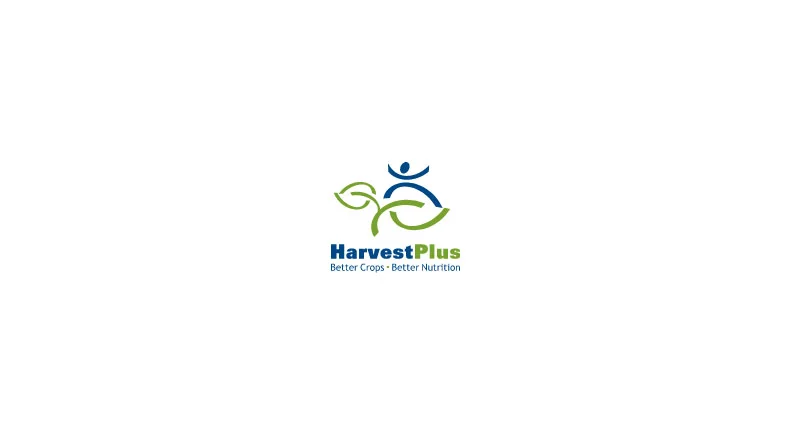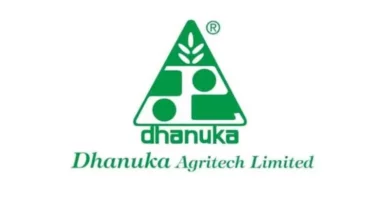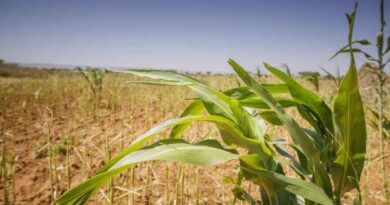Improving Nutrition Among Students and Surrounding School Communities Through Production and Consumption of Biofortified Crops
13 March 2024, Kasungu: Fifty-year-old Victoria Nkhambule is a grandmother of four, from Thupa in Kasungu District. Like most Malawians, she is a regular consumer of Malawi’s top staple food, corn meal, locally known as nsima – a thick porridge made from maize flour and water. According to her, the nsima made from orange maize, tastes differently. “Nsima prepared from orange maize flour is so delicious. It is sweet in taste. Besides that, after eating it I can go several hours without feeling hungry again because it fully satisfies my hunger,” she explains.
With support from HarvestPlus, Victoria, together with 14 other small-scale farmers under Tithandizane Farmers’ Club cultivated orange maize, a biofortified crop. Together, they harvested 16 bags, each weighing 50 kilograms. Of these, the club contributed two and half bags to Thupa Primary School as a contribution to the school’s feeding program. Victoria explains, “The remaining maize was shared among our club members, and I have been using it to prepare porridge for my grandchildren before they leave for school and as staple food for my family during lunch, and supper.”
Since May 2022, HarvestPlus Malawi has been working to overcome challenges of poor diets, under an initiative aimed at increasing production and consumption of micronutrient rich foods for over 10,000 school-going children of Standards 1 to 8 in 20 primary schools in Lilongwe and Kasungu districts. With financial assistance from the Waterloo Foundation of Wales, the schools have been supplied with materials to facilitate production of biofortified crops for healthy school meals, through school gardens, and to school communities (farmer clubs) for production of the same.
Besides the orange maize, the project also included NUA 45 iron beans seed to aid farmers and their families to have a staple food served with readily available nutritive relish. For 13-year-old standard eight learner at Thupa Primary School, Alexander Banda, the porridge prepared using orange maize keeps him in school all day long and stays focused on class. “The porridge is so different from the one made from white maize flour. Its taste is so unique. Apart from that, after eating it, I stay active all day long during school hours without going hungry again and it keeps my concentration levels in class high,” he says.
The school’s Head teacher Lameck Chirwa, hails this arrangement, describing it as a great way of assisting the schools to have sustainable way of providing porridge for its 532 leaners. “HarvestPlus provided us with 10 kgs of orange maize seed. After planting we harvested 50 bags of 50 kgs. We also received some maize from 15 farming clubs. This maize is enough to prepare porridge for our leaners for the whole year. In 2023/24 farming season we are planning to cultivate two acres of maize of the same variety,” says Chirwa.
The Agricultural Extension Development Officer for Kaluluma Extension Planning Area, Mark Mgunda, calls for more support towards biofortified crops farming to enhance both nutrition and food security. Nutritionists believe that the beta-carotene found in orange maize gives it its distinctive color and provides consumers with up to 50% of their daily vitamin A requirement.
Goal number two of the 2030 United Nations Sustainable Development Goals looks not only to end hunger, but also achieve food security and improved nutrition, and promote sustainable agriculture.
HarvestPlus Malawi Country Manager, Dellings Phiri, expressed satisfaction with the way the initiative is transforming communities’ mindsets towards agriculture sustainability and nutrition. He adds that championing self-reliance is what is needed for long-term economic sustainability, by increasing access to high quality nutritious foods for school-age children and their households to ensure improved nutritional and health status, schooling outcomes, and economic opportunities.
“The Malawi Biofortified Food Basket School Feeding Project has increased production and consumption of biofortified foods in primary schools in both Kasungu and Lilongwe Districts, and this is very positive development. Through this project, the participating schools have aggregated enough vitamin A maize grain to feed students for three months,” says Phiri.
The project, whose key objective was to ensure sustainable production of nutrient dense crops by schools and communities to feed students in schools, concluded in December 2023.
Also Read: Coromandel’s Gromor Drive Crosses 16,000+ acres of Drone-led Spraying
(For Latest Agriculture News & Updates, follow Krishak Jagat on Google News)















